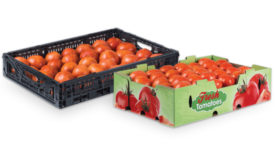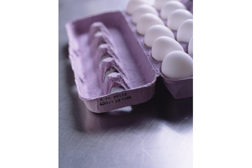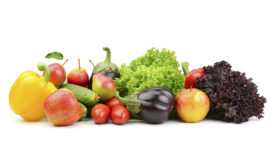Home » Keywords: » reusable plastic containers
Items Tagged with 'reusable plastic containers'
ARTICLES
Study reveals corrugated containers, reusable plastic containers offer same environmental advantages
The LCA examined the effects of each system on seven environmental impact indicators.
June 19, 2019
Study reveals a broken recycling system
Though more than 90% of respondents say they feel they know their local recycling rules, fewer than six in 10 reported researching them.
April 11, 2019
Study proves superior strength of Tosca RPCs over standard corrugated boxes
The findings illustrate how the superior strength of Tosca’s transport packaging solutions for case-ready meat provides better product protection.
March 7, 2019
Study: RPCs present 53% labor savings for grocers
The study found that it takes less than half the time to stock an egg display using retail-ready RPCs instead of corrugated.
February 18, 2019
Study shows reusable plastic containers extend produce shelf life by up to 4 days
The study reveals that IFCO RPCs extend the freshness and visual appeal of fresh fruits and vegetables for up to four days compared to single-use packaging.
November 6, 2018
Danone transitions toward circular economy of packaging
Danone will accelerate transition toward a circular economy of packaging in three ways.
October 29, 2018
Pelican BioThermal opens service centers in Basel, Berlin
The Basel and Berlin hubs will enable global Pelican BioThermal clients to receive and return the reusable Credo line of temperature-controlled packaging.
October 10, 2018
Aramark to reduce single-use plastic footprint company-wide
The company plans to expand its offering of reusable water bottles, mugs, takeout containers and bags.
July 25, 2018
Demand for reusable plastic containers to grow 7.6% annually
The study reveals the number of RPCs in use is larger than the demand due to the multiple trips made per year by most of these containers and their ability to be used for up to 100 trips.
July 10, 2018
Get our new eMagazine delivered to your inbox every month.
Stay in the know on the latest food and beverage manufacturing markets.
SUBSCRIBE TODAYCopyright ©2024. All Rights Reserved BNP Media.
Design, CMS, Hosting & Web Development :: ePublishing





